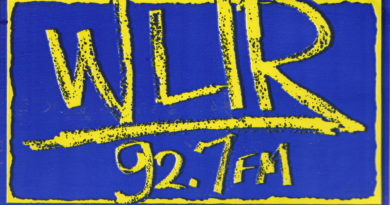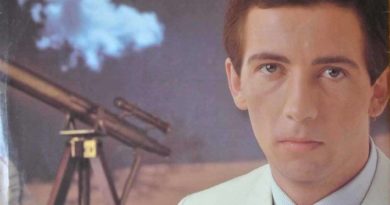‘Get The Knack’ Turns 40: Sizing up a Problematic Pop Landmark
For a brief, shining moment, The Knack’s 1979 debut album made the fledgling band The Beatles of the New Wave era. But how does it stand up four decades later?

When Get The Knack appeared in June of 1979, the American mainstream’s fascination with New Wave was really just getting off the ground, thanks to Blondie, Elvis Costello, Joe Jackson, The Cars, et al. But when four guys from L.A. broke through with the single of the summer — the power-pop hookfest that is “My Sharona” — and an image that leaned hard on the Fab Four evocations, it felt like America had its own Beatles to lead the way into the ’80s. At least for a little while.
As it turned out, the band was all but forgotten within a couple of years. But there’s no getting around the massive impact of Get The Knack. The album and the single went to No. 1, the latter achieving a ubiquity on the radio rivaling that of testosterone-laden monster truck rally commercials. The Knack’s appearance at Carnegie Hall that October was released the following year in the hot, new laser disc format (a medium that would have about as long a shelf life as the band), another notch in the band’s official Rock Star belts. The only thing missing in the band’s temporary takeover of America was the appearance of Knack bobblehead dolls.
The Knack wasn’t the first band to retool the power-pop sound for a new era, but the foursome was the first to ascend to a new tax bracket in the process. Thus it was that every hook-happy, skinny-tied band with a definite article in front of its name was optimistically flown up the major-label flagpole for the next two or three years. But the likes of The [American] Beat, The Pop, The Know, The Now, etc. never came close to scaling the same heights.

Get The Knack had a lot going for it. Beyond the aforementioned image and a big promotional push from Capitol, they had pop guru Mike Chapman in the producer’s chair fresh from making Blondie superstars with Parallel Lines, a boatload of can’t-miss hooks, and some serious chops. Check out the video of The Knack’s 1979 Carnegie Hall show for confirmation that singer/guitarist Doug Fieger, lead guitarist Berton Averre, drummer Bruce Gary and bassist Prescott Niles were a monstrous live band with little need for studio sweetening.
And lend an ear to the songs that didn’t chart from the album, like the rampaging “Let Me Out,” the edgy, tension-filled “Frustrated,” the surging “Your Number or Your Name,” or the Bo Diddley-goes-New Wave “(She’s So} Selfish.” You’ll quickly come to understand that the band’s way with a tune went well beyond both The Big Single and its hit follow-up, the Merseybeat-tinged “Good Girls Don’t.”
But there were two things working against the band at the time. One was that Get The Knack’s success had been so fast and overwhelming, and the Beatles comparisons so frequent, that a backlash inevitably developed against what some incorrectly saw as nothing more than a big record company hype job. The strike against the album that sticks though, even more so in retrospect, is the issue of Fieger’s lyrics.
For starters, let’s put it this way: If you Google “Get The Knack” and “misogyny,” you will not be lacking in search results. It’s been observed many times over the years, from 1979 to the present, that Fieger doesn’t exactly come across as a champion of women in some of these songs. That in itself would unfortunately not be newsworthy for a rock record in the ’70s. But even for the time, these tunes took the sexism to another level.
Without getting into quotations, let it simply be said that at least half the album’s songs feature either woman-hating bile, horny creepiness, emotionally stunted prurience or some combination of all the above. At the time, notoriously outspoken rock critic Robert Christgau hit the nail on the head when he noted in his review of the record, “if they felt this way about girls when they were unknowns, I shudder to think how they’re reacting to groupies…. Face it, this is a nasty time.”

Ultimately, Fieger comes off as a grown man with the sexual outlook of an adolescent boy, which in pop is both par for the course and even occasionally poignant in the right hands (Brian Wilson, anyone?). But The Knack frontman’s inner adolescent also happens to come across as exceptionally bitter, narcissistic, and unpleasant, often regarding women alternately as targets for conquest, resentment, or outright venom. Do the songs ever advocate physical violence against women? No. Will you encounter worse from countless metal and hip-hop lyrics? Sure. But once you start playing the moral equivalency game, you’re on the slipperiest of slopes and already starting from several steps behind.
And that’s not even opening the Pandora’s box of the age issue inherent in the song that gave Get The Knack its place in pop culture. “My Sharona” is about Fieger’s real-life girlfriend at the time, Sharona Alperin, who was reportedly 17 to Fieger’s 25 when they first got together, about a year before the song came out. Even today, that’s far from unusual in the rock ‘n’ roll realm, where Mick Jagger is more than four decades older than his current girlfriend. But Fieger didn’t exactly tamp down the potential creepiness by putting the lines “such a dirty mind, I always get it up for the touch of the younger kind” in the lyrics, not to mention having teen Sharona herself appear on the single’s picture sleeve looking like the winner of a wet t-shirt contest.
But between the galvanic majesty of the music, the fact that not many focused on (or could even discern) the lyrics, and the standards of a genre built on songs about teenage girls from Chuck Berry to The Beatles and beyond, few seemingly cried “foul,” even among those who decried Fieger’s sexism. And in the comparatively enlightened ’90s, the song enjoyed a second life, thanks to a scene in 1994’s archetypal Gen X film Reality Bites where Janene Garofalo, Wynona Ryder, and Steve Zahn dance ecstatically to it. “Sharona” became a hit all over again, but the context may be a key.
The characters dancing to the tune in the movie had grown up with the song, first encountering it as breathless teens or tweens giddily caught up in the irresistible rush of that mammoth riff and Bruce Gary’s whomping beat. Even if they paid attention to the lyrics at the time, they wouldn’t have been equipped to identify what was problematic about them. And by the time they were adults, even if they did stop to think about such issues, the song was grandfathered into the pop pantheon via a combination of its sheer visceral appeal and the rose-colored rearview mirror through which we look back at our youth.

Many more Gen X’ers find themselves in a similar position regarding not just “My Sharona” but Get The Knack as a whole. Surely a clear-eyed assessment of the lyrics makes modern-day acceptance impossible for some, but others (this writer included) are stuck in the middle of a much more complex push-pull, feeling guilty for loving the record but unable to completely detach from it.
How much of that is simply the power of the passions of our youth versus the pure sonic unassailability of The Knack’s pop mastery is impossible to say. And the attitudes of millennials coming to the album from a completely different perspective will undoubtedly differ as well. But whatever your stance, there’s no denying that there was a time when Get The Knack made a generation feel like they were experiencing a real rock ‘n’ roll phenomenon firsthand, for the first time.




